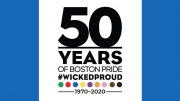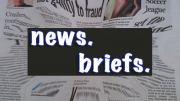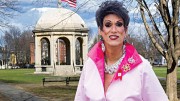By: Chris Azzopardi*/Special for TRT–
Comedian takes on Jodie Foster, ‘disgusting’ reality shows and voices in the night
Sandra Bernhard has never been one to mince her words. The saucy comedian – who’s been performing her audacious standup since the ’70s – wasn’t about to change her ways during our interview, where she says gay people need to get over Jodie Foster’s emotional coming-out (or whatever it was) and why she’ll never do a reality TV show.
Chris Azzopardi: In a review for your current show, The New York Times says the “meanness has largely evaporated.” Is that true?
Sandra Bernhard: I just think it’s transformed. As an artist and performer, you constantly transform your emotions in a different way. Certainly I’m still fueled by the same things that I have always been concerned about or fascinated by, but you just can’t stay locked in the same mentality your entire life. That just shows absolutely no evolution as a person.
Q. So the meanness isn’t completely gone.
A. I don’t think I’ve ever been mean, per se. Some people who are intimidated are gonna think I’m mean or scary; other people are just gonna think I’m ballsy. In terms of being strong and forthright and saying what’s on my mind, I don’t think that’ll ever change.
Q. Is writing stand-up now easier than it was at the beginning of your career?
A. No. My material has always just come from casual conversation. It just comes to me in a very melodic way. I don’t sit down and write material that way. A lot of my ideas are off-the-cuff, and I develop them from there.
Q. Of all your passions – music, comedy, politics – is there a specific one that you find most fulfilling?
A. Everything is in tandem with the others. Being a mother and being in a relationship with somebody for almost 14 years is sort of my bedrock. And my dog George, who’s a rescue pup. These are all things that anchor me day to day, and then I kind of go out from there. If you don’t have a solid base for your life, the rest of it doesn’t even have any impact after a certain point. So I think all that stuff melds together and it’s all exciting to me. It’s exciting to me that I can go out into the world and talk about all of it and experience it and retreat from it. I think that’s what keeps people sane and healthy.
Q. When we spoke four years ago, you mentioned looking for a regular TV gig.
A. I still am.
Q. Is it difficult to find roles or are you just picky?
A. Well, it’s kind of a combination of both. There are certain things that I just wouldn’t be happy doing. But there are just not that many roles that are right, either. I also have completely new representation in the last year that is really on top of it in a different way, so I’m feeling much more confident. In fact, I just did a guest-starring role on The Neighbors.
Q. How about for the rest of the year? Any major TV gigs in the works?
A. Yeah, I’m looking at them. It’s pilot season now, so as soon as that kicks into high gear, I’m sure I’ll be auditioning for several different roles and hopefully landing something – and hopefully that show will get picked up. It’s a big process for all that to happen.
Q. I don’t think people realize that.
A. No, they don’t. They think it’s all magic.
Q. As one of the first gay characters on television as Nancy Bartlett on Roseanne, what do you think of the strides we’ve made on TV as far as inclusivity?
It’s kind of stalled out. Some of it’s grotesque. Modern Family is fabulous and fun; The New Normal is over-the-top and awful and stupid and doesn’t really hit anything important.
Q. Which is ironic, because it’s Ryan Murphy – who’s gay!
A. I know. That’s my point. They’re usually the worst perpetrators of that …
Q. Stereotype?
A. Yeah. I think black people haven’t progressed very much in film and television, either. I just think it’s a white person’s medium, and unfortunately, a lot of people never get to experience the success they should.
Q. If you were to play Nancy now, in a time that’s much more progressive than it was in the early ’90s, would her character be different?
A. No, that wasn’t Roseanne’s take. They lived in a small town and it was all about what happened in a small town, and things have changed in small towns. I don’t think Roseanne could exist anymore on TV, so I don’t think Nancy would have a place. The way Roseanne presented small-town life doesn’t even make sense anymore.
Q. How long do you see yourself doing standup?
A. Forever.
Q. Some comedians, like Kathy Griffin and Joan Rivers, go on to do reality shows. Does that interest you at all?
A. No. You think they haven’t asked me to do that a million times? Absolutely not. From day one, that was destined to be crap. I don’t want to exploit my life or my family. It’s not what I got into this business for. You keep those two worlds separate. To show it in this disgusting, exploitive way – what is that? It’s nobody’s business how I live my life. I protect my daughter and my family at all costs. They’re not there for exploitation. My daughter didn’t choose to become exploited on television in some sleazy show. It’s just out of the question.
Q. I know you have an opinion about everything, so how do you feel about Jodie Foster’s speech at the Golden Globes?
A. I just think that it’s terribly sad that she’s spent her whole life holding down her emotions and repressing them, and of course I find it totally absurd that when you finally decide to tap into them, it’s in front of the entire world at the Golden Globes. Have your catharsis with your therapist and the people who are important to you, and then bring the results of that to the world.
I don’t think that (the Golden Globes) is the place to work it out. I don’t like maudlin in front of large groups of people. But I don’t think she thought about it. I just think it all came spewing out. I guess it’s all people who are in her life. I mean, her life has been the movies since she was 3 years old, so I don’t think she has much connection to reality, in a certain way.
Q. When you came out it wasn’t so much an issue for you, right?
A. I’ve never really come out. That’s never been my thing. I never made a definite statement about my sexuality. Obviously, I’m the torchbearer for people just to be comfortable in their own skin, and that’s what my whole philosophy has always been. I never needed to come out, because I came out as a person with many different facets to her personality since the beginning of my career. And that’s what I stand for.
Q. I remember a YouTube video you shot encouraging people to just be who they are.
A. Yeah, and fortunately or unfortunately, now you sort of have to beat people over the head with the obvious. My whole point of view has been subtlety, nuance and sophistication – that’s just not the world we’re living in anymore. Maudlin is the end of civilization.
Q. Rupert Everett is making news again for restating that gay celebrities shouldn’t out themselves if they want to maintain a successful career in the entertainment business. What’s your take? Do you think coming out affected your acting career? Did you miss out on roles because you’re gay?
A. No! I’m still an actress. I think my attitude and my kind of approach to who I am as a performer has affected it more than my sexuality. People perceive me as being tough and one-note, and sometimes that’s limiting – but hopefully you find that role that breaks the cliché. I don’t think anybody cares about the sexuality aspect, to be honest with you.
Q. What helped you gain the confidence to be so forthright with who you are?
A. I was just always that way naturally. That’s how I was as a kid and as a teenager, and I kept evolving over the years as I peeled away layers of myself – the onion that I live in. We’re all peeling away things as we go through life and revealing more of ourselves to ourselves and to those around us. If you stay grounded in the world and in your life, you’re just gonna keep evolving and also enjoying your life as you go. I mean, otherwise, what’s the point?
Q. Do you think Jodie’s speech warrants all the fuss from the gay community? Do you think we’re being too persnickety?
A. What was the response from the gay community?
Q. Some people say it’s too little too late.
A. I mean, does it really matter? Do we need Jodie Foster to legitimize our cause? I mean, who f#%$@ng cares?
Q. We do. You know how we look to other people in the gay community as examples.
A. Ah, I know. That’s what I don’t like. Don’t expect any one person to be the role model for the entire community. Everybody needs to do that for themselves. That’s always been my point of my view. If you don’t feel confident, if you don’t feel good, then you figure it out. Don’t wait for somebody else to do it for you.
Q. We look for all these other voices to speak for us.
A. Yeah, I know, I know. These voices that come to us in the night. I know.
Q. You mean to tell me you never have voices come to you?
A. I tell them to shut up and I go back to sleep.
* Chris Azzopardi is the editor of Q Syndicate, the international LGBT wire service. Reach him via his website at www.chris-azzopardi.com.








